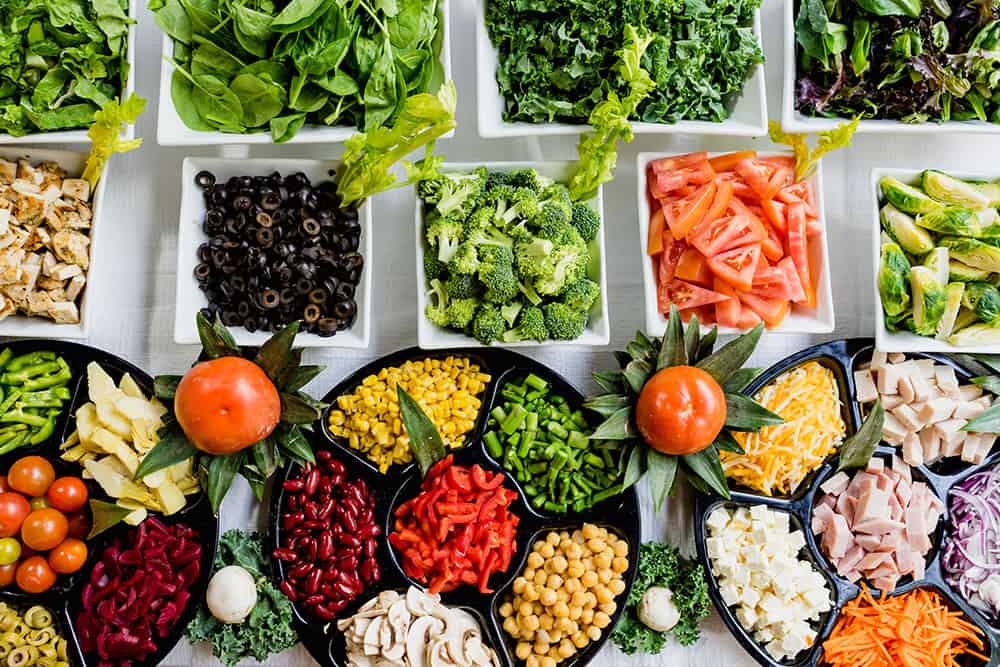If you’re an enthusiastic yogi, you might already be taking Vinyasa yoga Folsom classes at Zuda and steadily working your way to a happier, healthier life. However, does that healthiness carry over to your eating habits?
If you’re low on energy and looking for a pick-me-up after a yoga class, do you immediately look for a candy bar or a coffee? These choices will only undo the hard work you’ve already put in for your health. An important element of a healthy lifestyle is the choices you make with your food. In order to activate and sustain good levels of energy throughout the day, you need complex carbohydrates that release energy into your body slowly, as well as good quality protein that helps maintain your muscles and tissues. The following is a list of 10 foods that can help you healthily activate your energy at Zuda Yoga.
Oatmeal
Oatmeal is one of the best low-glycemic complex carbohydrates you can choose as an energy source. Your system digests it slowly, meaning that the energy it will give you is supplied steadily and evenly over time, preventing any of the energy crashes that you get with foods high in sugar. It contains a lot of fiber and nutrients, as well as B-vitamins that help convert food into energy. A single bowl in the morning will be able to provide you with energy for hours. Aside from that, oatmeal is also whole-grain and gluten-free, and the options you have for adding flavor are endless. Not a fan of plain oatmeal? Add in other healthy boosts like berries or nuts for a nutritional, filling, and delicious breakfast.
Eggs and Chicken
A single egg, on average, contains 6 grams of protein at only 70 calories. Eggs contain essential amino acids, B-vitamins, healthy fats, vitamin D, and choline in one small package. This is a higher nutrient to calorie ratio than most foods, making it a healthy way to satisfy hunger. It also provides energy that gets released slowly over hours, allowing you to power through your yoga lessons with ease. With your hunger satisfied, you’re less likely to crave unhealthy food items for a quick energy boost. These foods are detrimental because you have to trade off blood sugar spikes and energy crashes for that quick fix.
Even after an egg has developed into a chicken, they are still a good pick, as chicken (without skin) is a great source of lean protein while also containing less saturated fat than other meat choices.
Sweet Potatoes
Sweet potatoes are another good pick for a complex carbohydrate, as they are very filling and contain many important nutrients. Among these nutrients are iron (important for your red blood cells to transport the oxygen that various systems in your body need for energy), magnesium (which plays a vital role in supporting energy production as well as muscle and nerve function), and vitamin C (necessary for transporting fat to your cells in order to produce energy).
Spinach
Spinach is a leafy green absolutely loaded with nutrients. It comes with fiber (which helps in digestion), vitamin K (for your bones), lutein (for your eyes), and is also high in iron, magnesium, and potassium. The latter three are instrumental to energy production in your body, which makes snacking on spinach a viable option for gaining back energy when you’re tired.
Beans
Beans are another good source of magnesium for energy production, as well as protein and fiber to slow digestion and ensure you get a steady supply of energy. Soybeans in particular are high in protein, B-vitamins, copper, and phosphorus, the latter two being nutrients involved in converting food to energy within the body.
Fish
Sardines, salmon, tuna, and mackerel are rich in omega-3 fatty acids, which are a good kind of fat that your body can’t produce but are very valuable in combating diseases such as heart disease, dementia, and arthritis. Aside from omega-3s, fish is also a good source of protein for a steady energy supply, along with nutrients such as B-vitamins and vitamin D. Low levels of vitamin D can cause low energy and fatigue, so consider adding fish to your diet to boost your energy and your mood.
Nuts and Seeds
Nuts may be tiny, but they are dense with healthy fats (omega-3s), vitamins, minerals, and fiber. Despite being calorie-rich, the fiber slows down their digestion and the healthy fats sustain hunger for hours, so the people that regularly eat them don’t actually show signs of bad health such as excessive weight gain. Walnuts in particular have an omega-3, alpha-linolenic acid, that the body uses for energy production.
Seeds, such as squash and pumpkin seeds, are also full of healthy fats and minerals that the body uses for energy. These include manganese, magnesium, phosphorus, and zinc. Zinc in particular is helpful after an exercise like yoga, as it helps muscle recovery.
Fruits and Berries
If you’ve got a sweet tooth and find yourself troubled by giving up your candy bars or chocolates, turn to fruits and berries instead, which can satisfy your need for sweets without the calories and energy crash of the unhealthier choices. They provide antioxidants, fiber, vitamins, minerals, and natural sugars that are absorbed into your bloodstream for a quick pick-me-up that also nourishes your cells. Aside from eating them on their own, they are also a great complement to other healthy foods, such as oatmeal and natural yogurt.
Tea
Tea is the healthier alternative to coffees, sodas, and energy drinks. They contain less calories while retaining a bit of caffeine for a little energy boost that doesn’t spike and crash. A cup of tea is a good way to keep you alert and energized each day, with the added bonus of keeping you hydrated. Black teas typically have the highest amount of caffeine, while green teas offer health benefits like lowering your cholesterol.
Water
Water may seem like a strange choice for an energy booster, but the truth of it is that your body needs water for many of the processes it carries out. It helps get rid of waste, carry nutrients, regulate temperature, and facilitate bodily functions like digestion and blood circulation. When you don’t drink enough water, it puts a strain on your body and you get tired, both physically and mentally. Even mild levels of dehydration can lead to a dip in your mood, energy, and focus levels. When exercising, such as doing yoga in practice, make sure you have water to drink before and after your exercises. For daily intake, the recommended amount is 8 glasses or 2 liters of water a day.
Energy-Activating Foods and Yoga Go Hand in Hand
In order to make the most out of your yoga in practice at Zuda Yoga Folsom, supplement your exercise with the right fuel to keep you going. Instead of grabbing a sugary donut the next time you feel low on energy, go for complex carbohydrates and healthy fats, like oatmeal, sweet potatoes, fish, nuts, and the like, in order to keep your energy levels up for longer. Foods rich in minerals, vitamins, and protein are also highly important to keeping healthy, especially in repairing muscles worn down by exercise. Aside from eating well, make sure you’re drinking a steady supply of water, and live a happier, healthier life by keeping your energy up every day.
Zuda offers online Yoga classes and a special beginner yoga special (New Student Special 30 days for $30).









